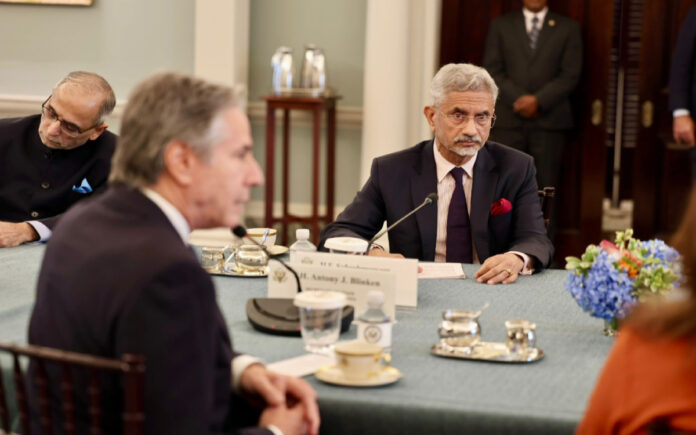Washington, D.C.: India does not align with the vision for an “Asian NATO” proposed by Japan’s new Prime Minister, Shigeru Ishiba, according to Indian Foreign Minister Subrahmanyam Jaishankar. Speaking at an event at Washington’s Carnegie Endowment for International Peace on Tuesday, Jaishankar emphasized that India has a distinct strategic approach compared to Japan, which has been a treaty ally of the United States.
“We don’t have that kind of strategic architecture in mind,” Jaishankar stated when asked about Ishiba’s proposal. India and Japan, along with the United States and Australia, are part of the Quad—a grouping aimed at counterbalancing China’s influence in the region.
Jaishankar elaborated, “We have … a different history and different way of approaching…” He recently addressed the U.N. General Assembly in New York and is scheduled to meet with U.S. Secretary of State Antony Blinken and Deputy Secretary of State Kurt Campbell later on Tuesday.
Ishiba has called for enhanced ties with friendly nations to address what he described as the most serious security threats Japan has encountered since World War II. His vision includes the establishment of an Asian NATO, the potential stationing of Japanese troops on U.S. soil, and even shared control of Washington’s nuclear weapons as a deterrent against Japan’s nuclear-armed neighbors, namely China, Russia, and North Korea. He argues that these measures would discourage China from employing military force in Asia.
Also Read | Canary Wharf Shifts Gears: Plans to Repurpose Empty Offices into Hotels and Leisure Spaces
However, the United States has dismissed Ishiba’s idea. National Security Adviser Jake Sullivan stated last year that Washington was not pursuing the creation of a NATO-like structure in the Indo-Pacific. This month, Daniel Kritenbrink, the U.S. Assistant Secretary of State for East Asia and the Pacific, echoed that sentiment, indicating it is premature to discuss such an organization.
Despite the pushback, Ishiba reiterated his stance on Friday, highlighting that “the relative decline of U.S. might” necessitated the formation of an Asian treaty organization.
Also Read | Myanmar’s Civil War Fuels Escalation of Drug Trafficking in Thailand
On September 21, Prime Minister Narendra Modi participated in a Quad summit with U.S. President Joe Biden, former Prime Minister Fumio Kishida of Japan, and the Australian Prime Minister. They announced collaborative security measures in Asia’s trade-rich waters, addressing the growing challenges posed by China.
Although the Quad is increasingly focused on security issues, India has made it clear that it is not intended to function as a military alliance.



